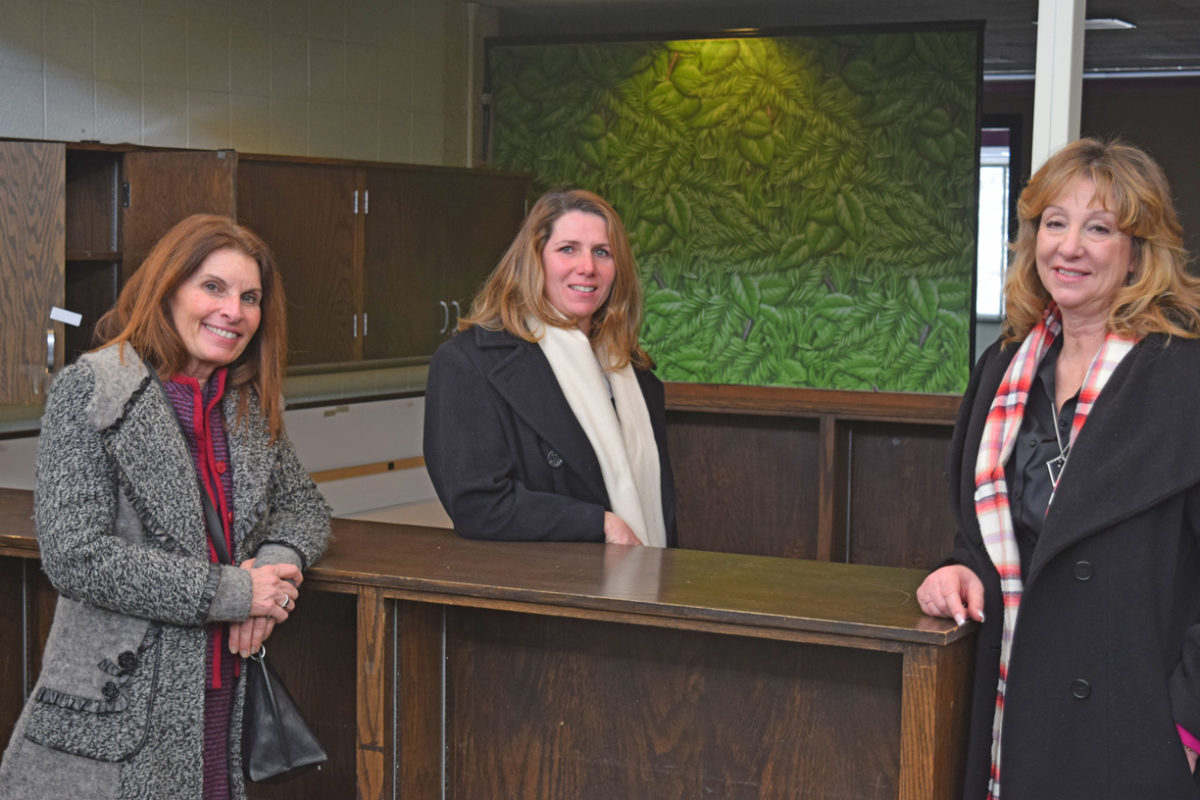The U.S. Food and Drug Administration in December issued a proposal for a new risk-based enforcement approach to drug products labeled as homeopathic. According to the agency, the proposed change would update existing policies on quality control in the manufacturing and marketing of homeopathic products that the FDA found lacking in clinical benefits.
The homeopathic drug market grew over the past decade into a $3 billion industry “that exposes more patients to potential risks associated with the proliferation of unproven, untested products and unsubstantiated health claims,” FDA officials said in the announcement.
 The agency claimed that homeopathic teething tablets and gels containing belladonna “were associated with serious adverse events, including seizures and deaths, in infants and children.” In 2010, it noted, products sold under the Hyland”™s Teething Tablets brand were found to contain varying amounts of belladonna, the deadly nightshade plant that can be toxic for humans. The FDA also pointed to “certain homeopathic zinc-containing intranasal products that may cause a loss of sense of smell.”
The agency claimed that homeopathic teething tablets and gels containing belladonna “were associated with serious adverse events, including seizures and deaths, in infants and children.” In 2010, it noted, products sold under the Hyland”™s Teething Tablets brand were found to contain varying amounts of belladonna, the deadly nightshade plant that can be toxic for humans. The FDA also pointed to “certain homeopathic zinc-containing intranasal products that may cause a loss of sense of smell.”
“Homeopathic products have not been approved by the FDA for any use and may not meet modern standards for safety, effectiveness and quality,” said Janet Woodcock, director of the FDA”™s Center for Drug Evaluation and Research. “The draft guidance is an important step forward in the agency’s work to protect patients from unproven and potentially dangerous products.”
In this region, the FDA”™s actions were received with confusion and anger by some homeopathic practitioners.
“That is a very loose statement and I”™m not even sure what it says,” said Dr. Ronald D. Whitmont, a homeopathic physician in Rhinebeck and president of the American Institute of Homeopathy. “It is a series of sentences that says they”™re monitoring harmful remedies, but the words can be interpreted subjectively.”
Homeopathy is an alternative medicine practice developed in the late 18th century by German physician Samuel Hahnemann, who theorized that a natural substance that can create symptoms of illness in a healthy person can be used in a severely diluted form to treat a sick person. Hahnemann also believed that the substance”™s potency increased with greater dilution levels, ultimately helping to enhance the body’s normal healing and self-regulatory processes. Most homeopathic remedies derive from plant or mineral sources.
Homeopathy was introduced to the U.S. in 1825, but the practice is more prevalent in Europe. The National Institutes of Health estimates that more than 6 million people in this country use homeopathy, primarily in self-administered care to treat specific conditions. The Homeopathic Research Institute estimates that roughly 29 percent of the population in the European Union”™s member nations use homeopathic medicines in their day-to-day health care.
Medical doctors can practice homeopathy anywhere in the U.S., while Connecticut is one of three states, along with Arizona and Nevada, with homeopathic medical boards that license medical doctors who specialize in homeopathy.
Among practitioners of conventional medicine, many believe that homeopathic remedies have no more curative value than a placebo. But Dominick Masiello, a physician offering homeopathic and osteopathic care in Manhattan and Ridgefield, disagreed with that commonly held view.
“Critics of homeopathy want it both ways,” he said. “They say there is nothing in it and that it”™s a total scam, but then they say that someone got poisoned by it.”
Masiello also faulted the FDA for citing a quality control problem at a single facility as being representative of the entire industry. “They are talking about one company, one manufacturing plant. Someone put too much belladonna in a teething product. That company has been around for 90 years,” he said.
Masiello said he was not previously aware of the FDA”™s claims about seizures and deaths related to teething products. Whitmont pointed out that no medical evidence, has ever been presented that specifically tied any infant death exclusively to a homeopathic product and no criminal charges have
been brought.
Whitmont also faulted the FDA for holding up the Zicam nasal spray product as an example of homeopathy gone haywire. “That is not a homeopathic medicine,” he said. “It is a combined medicine with a high level of zinc, and zinc is known to cause problems in nasal use.”
Susan Sonz, director of the New York School of Homeopathy in lower Manhattan, was surprised at the FDA”™s report of a $3 billion homeopathic industry. “Three billion dollars?” she said with a laugh. “I find that hard to believe. Any homeopath will tell you that is highly improbable. It is not that big in this country. Homeopathic remedies are cheap, $8 over the counter.”
Sonz also questioned the FDA”™s statement that it has not approved homeopathic drugs for any use.
“Very, very early in the FDA”™s life, homeopathy got approved as safe and over-the-counter,” she said, pointing to the federal Food, Drug, and Cosmetic Act of 1938. “Now, suddenly, they say it”™s not safe? To say homeopathy kills is playing into the current political climate of saying whatever you want to get whatever you want.”
What impact the FDA”™s course of action will have on the sale of homeopathic remedies is unclear.
Masiello predicted that it would have no impact unless buyers for chain drug stores decided to remove homeopathic products from their shelves. Homeopathic practitioners have other more pressing concerns, he said, such as expanding their inclusion in health care network coverage by insurers.
Dr. Randy Trowbridge, founder of Team Rehab in Danbury and president of the Fairfield County Medical Association, also expressed skepticism about the tone of the FDA”™s new attention to homeopathy. A less heavy-handed approach would be more appropriate in addressing regulatory concerns, he said.
“Sometimes there are natural remedies that can be harmful if not used properly,” Trowbridge said. “It is necessary to alert people that anything in excess is harmful to the human body.”
Darin Ingels, a naturopathic practitioner in Fairfield, wondered about the FDA”™s lack of outrage over some traditional over-the-counter drugs. “Aspirin kills 3,000 people per year,” he said. “Where was everyone clamoring to take aspirin off the shelf?”




















Medicines which are truly homeopathic, that is prepared according to homeopathic pharmacy standards, are incapable of doing harm. They are safe, non-toxic, non-addictive and create no side effects (iatrogenic diseases). Most potencies do not even contain one molecule of substance. This accounts for their great safety and also for their efficacy. Homeopathy is a nano-medicine so does not rely on gross amounts of substance to do its work. It works by stimulating the person’s immune system to heal the person naturally.
Homeopathics were approved for OTC sales by the FDA in 1938 based on 200 years of clinical use in hundreds of millions of people around the world which showed that they have an overwhelming safety record. There are large scale studies showing homeopathic medicines are safe for infants, nursing mothers, pregnant women, children and adults. One study concluded: “We have been unable to find any evidence to support a claim that HMP’s (homeopathic medicines) may cause serious AE (Adverse Events) or ADR (Adverse Drug Reactions). The results we have seen are in line with claims such as those put forward by Reilly (2005) who states that homeopathy lacks the potential for life-threatening side effects, and it may be used in pregnancy and the treatment of infants and children without risk of harm.”
http://homeopathyresource.wordpress.com/2009/01/05/extensive-study-concludes-homeopathic-remedies-and-treatment-are-safe/
I’ve used homeopathy myself for twenty years and have found it to be so safe, so successful, so curative and so inexpensive that it is my primary form of medicine. It has never let me down. Anyone who finds homeopathy has a friend for life.
Genuinely homeopathic preparations have no side effects because they have no effects at all. They are just sugar pills with nothing else in them. People get better naturally and think that the silly sugar pill cured them. Large scale studies showed this clearly.
Homeopathy wasn’t approved in 1938. It was because of a senator named Copeland, who was a homeopath himself who forbid the FDA by law in 1938 from regulating it. It is time to remove this old political protection.
Trouble is, there is no quality control for homeopathy. When actual toxic materials make it to patients, homeopaths just say they are nano medicine – how convenient?
Just to add to the debate – after all science is the pursuit of knowledge. We don’t why homeopathy works but through 200 years of observational study it has shown to be very effective against chronic and/or complicated diseases that conventional (i.e. medicine practiced at the time) could/can not treat. Yes it is a fact that your fantastic body will work hard to rid itself of an acute illness within 7 days (which is one reason why your Doctor may not prescribe antibiotics) but to say that the person who has suffered from psoriasis for 20 years has got better because of a chat with a homeopath and a sugar pill is stretching the placebo argument.
You are correct in that QC should be rigorous and I’m not sure why a teething product was allowed on the market without passing exacting standards (most countries have strict consumer standards especially around children) or why a therapeutic product such as a nasal spray could contain high levels of zinc but this has nothing to do with homeopathy does it?!
If there are unlicensed people selling unregulated products in America then this, quite rightly, should be looked into. I’m sure there are many unscrupulous people selling dodgy or knock off pharma right now. Tens of thousands (look up the figures just for Americans) die every single year die because of pharmaceutical products that have supposedly passed the ‘gold’ standard tests so we could argue (and should argue) that is not a good outcome.
At the end of the day we all want the same things. Banning something that our current scientific thinking doesn’t understand but globally hundreds of thousands of people swear by (& we are not all fools – I have a Masters degree) is just plain ignorant.
why cant the FDA make up their mind ? If homoeopathic medicines are “placebo” how can it poison? Are they scared that homoeopathy will become first choice with patients.
Well written article Phil!